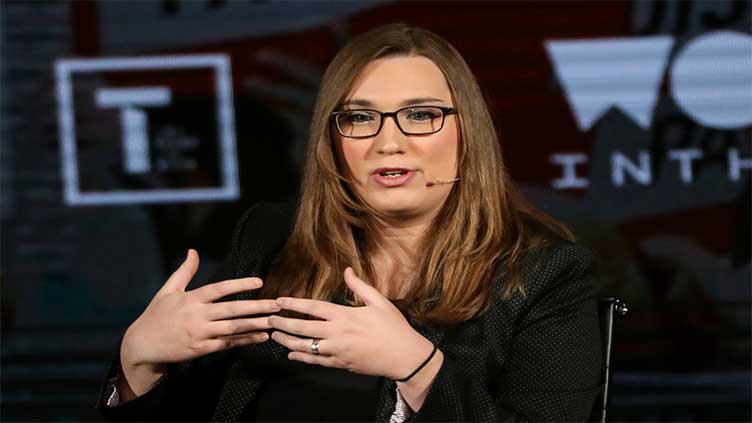Democrat Sarah McBride becomes first openly transgender member of US Congress in 'journey of hope'

World
McBride, a state senator, won a competitive primary for Delaware's at-large congressional district
WILMINGTON, DELAWARE (Reuters) – Democrat Sarah McBride became the first openly transgender person elected to the US House of Representatives, Edison Research projected on Tuesday, winning election to Delaware's at-large seat.
McBride, a 34-year-old state senator, won a competitive primary for Delaware's at-large congressional district, considered safely Democratic, in September.
She became the first openly transgender person to serve as a state senator when she was elected in 2020, first to speak at a US national political party convention in 2016, and first to intern at the White House in 2012, under Democratic former President Barack Obama.
In an interview with Reuters ahead of her election, McBride said she wasn’t running for Congress to be a trailblazer for the transgender community but to “make a difference” for her home state of Delaware.
Speaking to Reuters on October 26, during the final stretch of her campaign, she sought to downplay the history-making nature of her candidacy.
“I am very mindful that my responsibility is not to any other community that I'm a part of other than the community that is the state of Delaware,” she said. “I’m not doing this to make history… I’m doing this to serve.”
But with her identity so politicized in recent years, she was under no illusions that there is a spotlight on her. Republicans have sought to make anti-trans sentiment a key message among swing voters and former president and Republican nominee Donald Trump has portrayed the issue of trans rights as part of an extremist left-wing cultural agenda.
“There's no question that our politics is toxic,” McBride said. “It's cruel, its discourse is coarse.”
However, as she drove to get her morning coffee at Brew Ha Ha, one of her favorite local cafes, she said campaigning has taught her that “people are hungry for a politics rooted in kindness and compassion and collaboration.”
Her opponent, Republican candidate John Whalen III, had declined to make the race about gender politics in the way other Republicans have across the country.
McBride said that when she gets to Congress, she will work with Republican members open to bipartisanship, even if they do not fully support LGBTQ rights. Her priorities in Congress will include passing the PRO Act, which would expand federal protections for workers to unionize, as well as affordable healthcare and childcare.
Lawmakers in 37 US states introduced at least 142 bills to restrict gender-affirming healthcare for trans- and gender-expansive people in 2023, Reuters reported, nearly three times as many as the previous year. In Congress, Republicans have pushed anti-trans bills at the national level for years.
Finding her transgender identity, what McBride calls her “journey to authenticity”, has been a difficult road, she said. She credits the tolerance and support of Delawareans with helping her get to where she is today and also with helping her heal after the loss of her husband Andrew Cray, who died from cancer shortly after their 2014 wedding.
At polling place Newark, Delaware, McBride was warmly greeted by some of the local residents lining up to take part in early voting.
“I’m so excited to vote for you…. you mean so much to the community,” one woman said before Sarah asked for a hug.
73-year-old Monty Crawley said he couldn’t wait to vote this year, mainly because he wanted to support the female members of his family by protecting reproductive rights.
Crawley said he doesn’t care about McBride’s identity, only her policies.
“It doesn't mean anything,” he told Reuters. “What she stands for. That's what counts to me.”
While McBride herself has sought to focus her campaign on the issues rather than her identity, her composure nearly broke when asked what message the trans youth of America should take from her expected election.
"Anyone who worries that the heart of this country is not big enough to love them should know that they belong," she said. "Our democracy is big enough for all of us."


